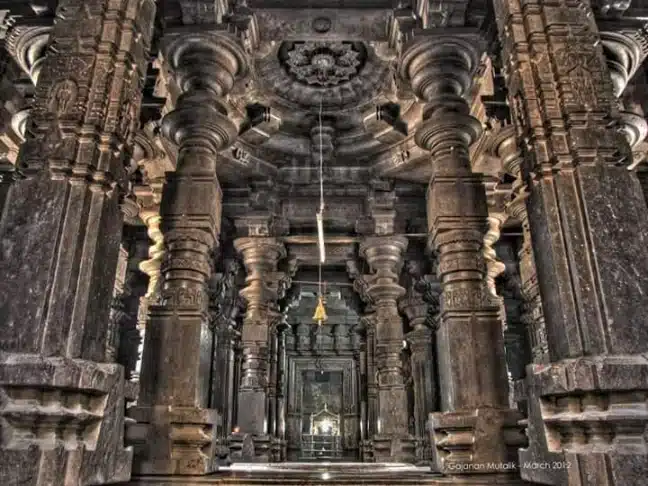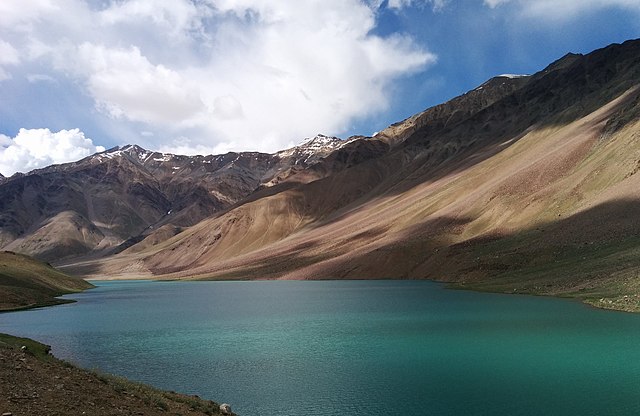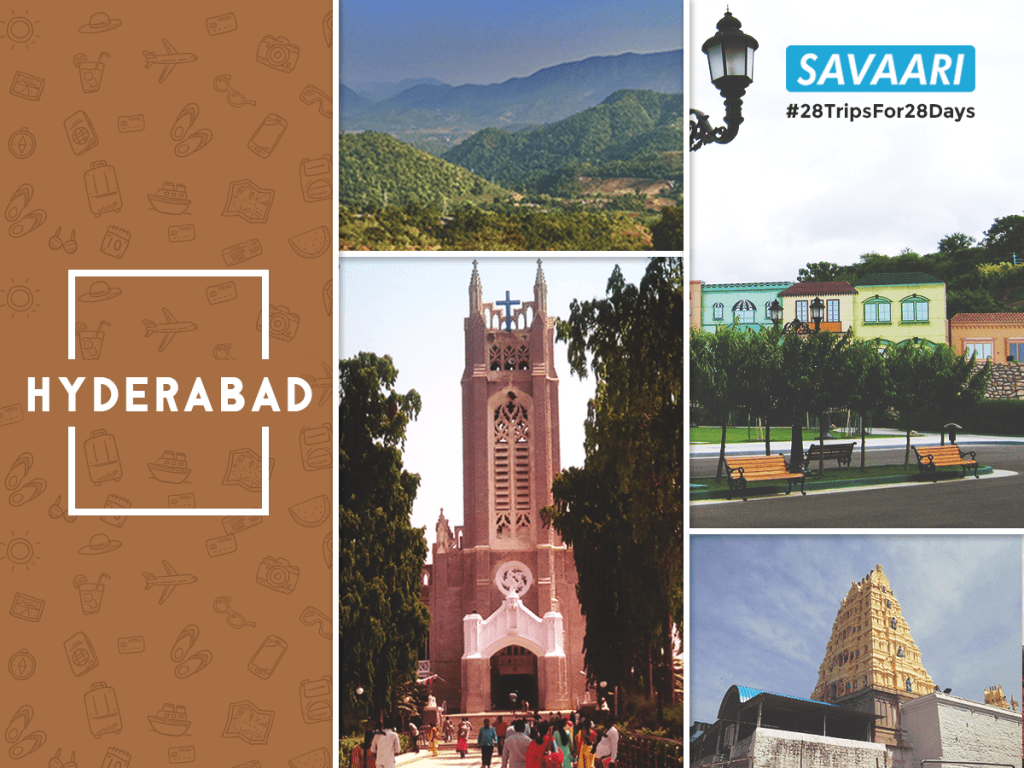India’s rich culture, heritage, and scenic beauty have long been major draws for tourists worldwide. However, in recent years, India has also emerged as a leading destination for medical tourism. Patients from all over the globe are now choosing India for medical treatment, attracted by the country’s world-class healthcare facilities and skilled medical professionals who offer a vast array of treatments and procedures, from organ transplants and cardiac surgeries to alternative therapies like Ayurveda, Yoga, and Naturopathy.
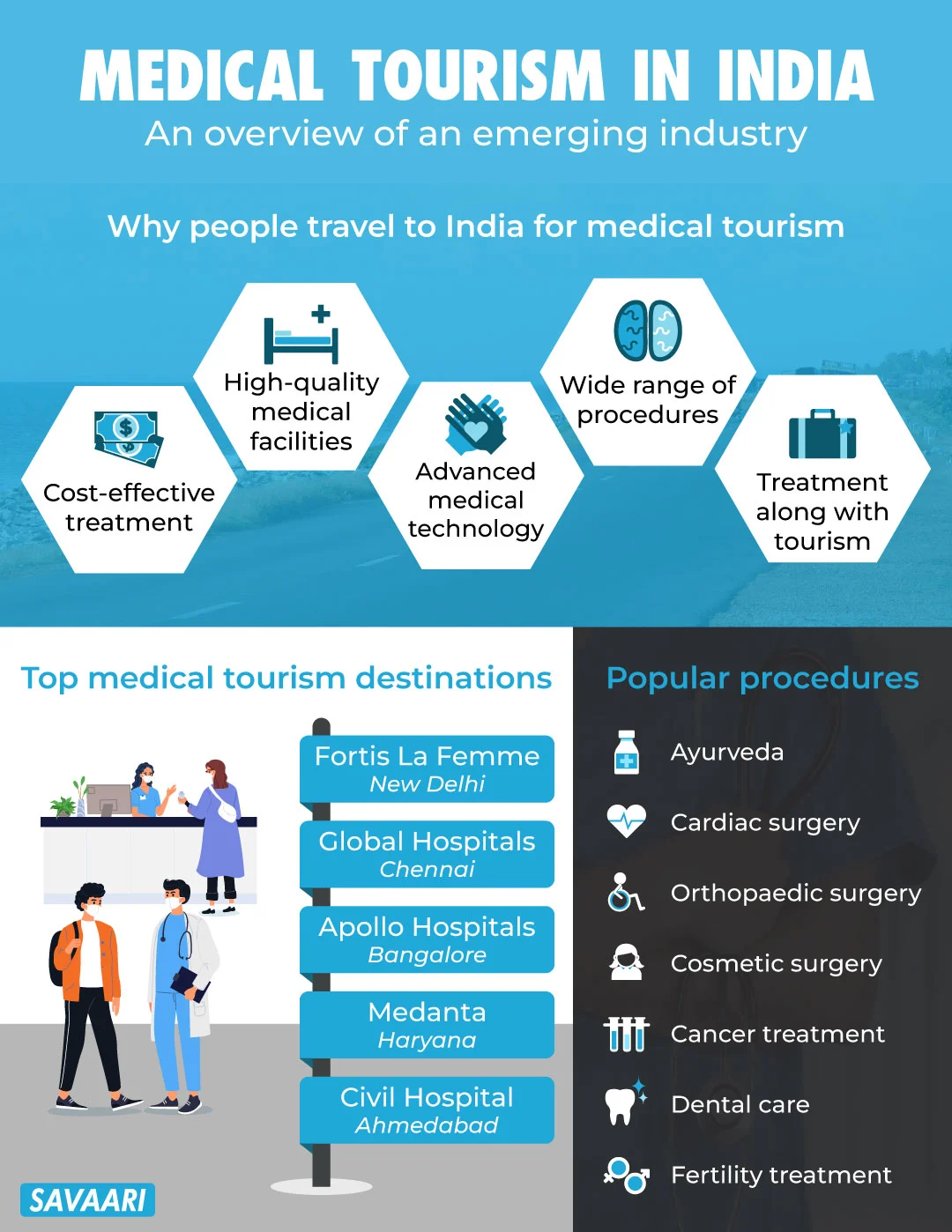
With significant advances in medical research and the adoption of modern technologies, India’s healthcare sector has undergone remarkable growth and development in recent years. As a result, India can now provide top-notch medical services and treatments at a fraction of the cost patients would pay in their home countries. This affordability, combined with the availability of highly skilled medical professionals and cutting-edge medical technologies, has made India an increasingly popular destination for patients seeking medical treatments worldwide. With a plethora of advanced medical facilities, Chennai has become the medical capital of India, attracting a large number of tourists seeking the best medical treatment in India. Booking a car rental in Chennai is the ideal way to discover the diverse healthcare amenities available in the city.
India’s ascent as a premier medical tourism destination has been remarkable. Still, certain hurdles impede its potential to become the world’s leading hub for medical travel, such as transportation infrastructure. This article will explore the factors that have contributed to India’s rise as a prominent destination for medical tourism, as well as the challenges that hinder its progress towards becoming the top medical tourism hub, particularly in terms of transportation.
The gradual rise of India as a medical tourism powerhouse
India’s emergence as a medical tourism powerhouse has been a gradual process that has been ongoing for several decades. However, in recent years, India has become a top destination for medical travellers seeking high-quality and affordable medical treatments. One of the critical factors driving India’s growth in medical tourism is its highly skilled and experienced medical professionals. India has a large pool of doctors and medical specialists renowned for their expertise in various medical fields, including cardiology, orthopaedics, neurology, and oncology.
Another important consideration is the economic advantage provided by Indian healthcare providers. Medical treatments in India can be a fraction of the cost in nations such as the United States, the United Kingdom, or Australia, making it an appealing alternative for patients looking for economical healthcare. According to the Federation of Indian Chambers of Commerce and Industry (FICCI), medical tourism in India was valued at around $3 billion in 2015 and is expected to rise at a compound annual growth rate (CAGR) of 15% to $8 billion by 2020. In 2017, an estimated 495,056 medical tourists visited India, with the bulk coming from Bangladesh, Afghanistan, and the Maldives.
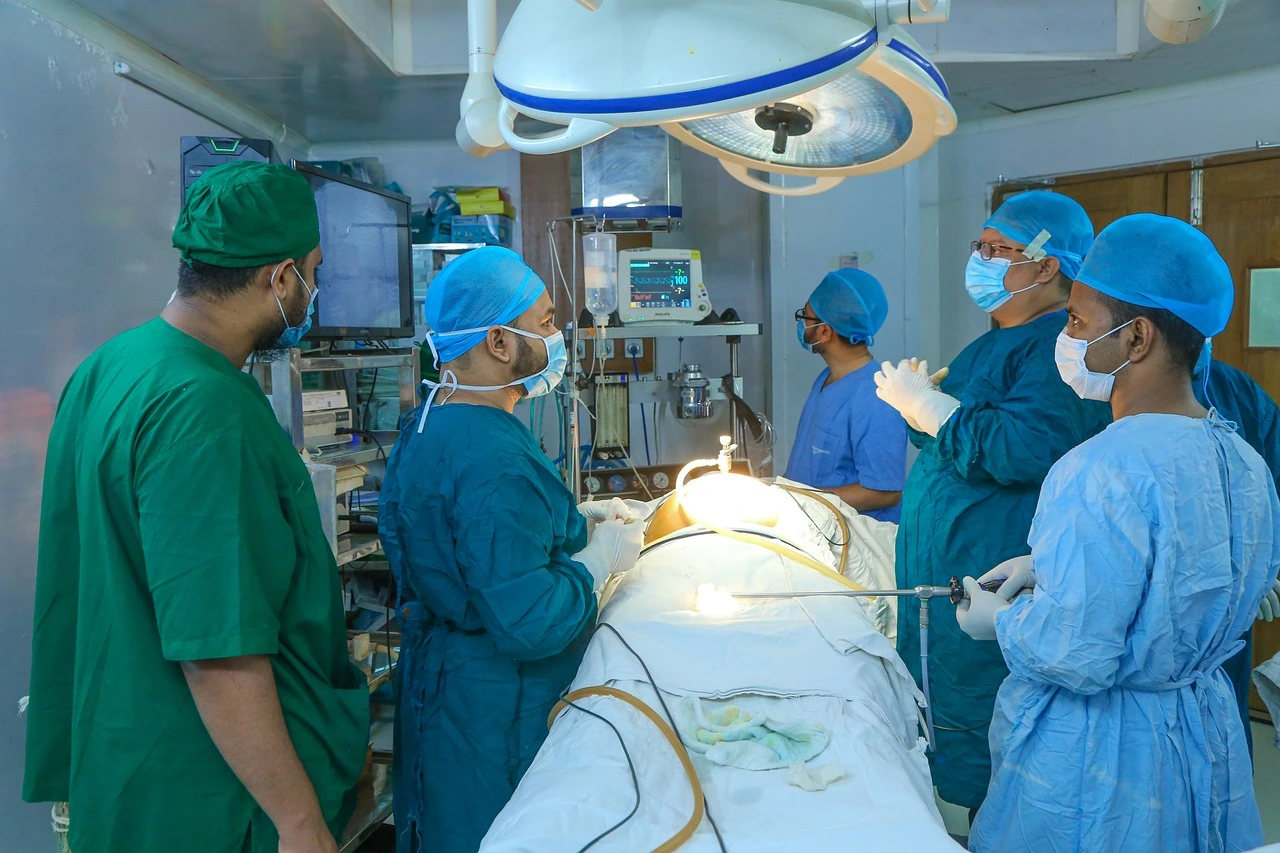
In February 2019, the Indian government extended its e-tourism VISA program to include medical visas to attract medical tourists to Chennai, India’s healthcare capital. This move aimed to simplify the application process and travel requirements for medical tourists. The medical visa allows for a maximum stay of six months. On August 30, 2019, foreigners were permitted to receive any medical treatment in India, except organ transplants, without requiring a medical visa.
Over 1.4 million medical tourists visited India in the past one year, making it one of the top destinations for medical tourism, said Union Minister of State for Tourism Shripad Naik. Today, about 2 million patients from these regions visit India annually, producing $4 billion in annual forex. However, the future is considerably brighter.
Under the direction of Prime Minister Modi, India’s health minister, Dr Mansukh Madaviya, has declared Medical Tourism a champion sector, providing it with unprecedented support. The government is going all out to make India the world’s No. 1 destination for medical tourism, doubling it to $12 billion in four years and developing a new business that will employ millions of people across the country. To further boost the medical tourism industry in India, the government announced the AYUSH visa in April 2022. This visa is specifically for travellers seeking treatments under traditional Indian medical systems such as Ayurveda, Yoga, Naturopathy, Unani, Siddha, and Homoeopathy. In addition, the government has also created a National Medical and Wellness Tourism Board to promote India as a medical tourism destination and establish policies and guidelines for the industry.
By making additional investments in infrastructure, technology, and services and ensuring a hassle-free experience for international patients, the medical tourism sector in India could emerge as a significant source of foreign exchange earnings for the country. Moreover, this sector has the potential to be incorporated into a larger tourism ecosystem, resulting in substantial growth opportunities.
Popular medical procedures for tourists in India
India is famous for medical tourism due to its affordable medical treatments and state-of-the-art medical facilities. Some of the most popular treatments for medical tourism in India include:
Ayurveda

Ayurveda, a holistic medicinal system that originated in India about 5000 years ago, has been the primary medicine used in the country for centuries. According to a report by the Ministry of Tourism, Government of India, around 1.62 million medical tourists visited India in 2017, many of which came for Ayurvedic treatments. It is estimated that around 20-30% of medical tourists who visit India come for Ayurveda treatments, which is increasing yearly. Kerala, the southernmost state of India, is known as the “birthplace of Ayurveda” and is one of the most popular destinations for Ayurveda tourism in India. Some of the most popular Ayurveda retreats in Kerala include Somatheeram Ayurveda Village in Kovalam, Kairali Ayurvedic Health Resort in Palakkad, Ayurveda Yoga Villa in Wayanad, and Kalari Kovilakom in Kollengode. The best way to visit these resorts is by booking a cab from Kochi.
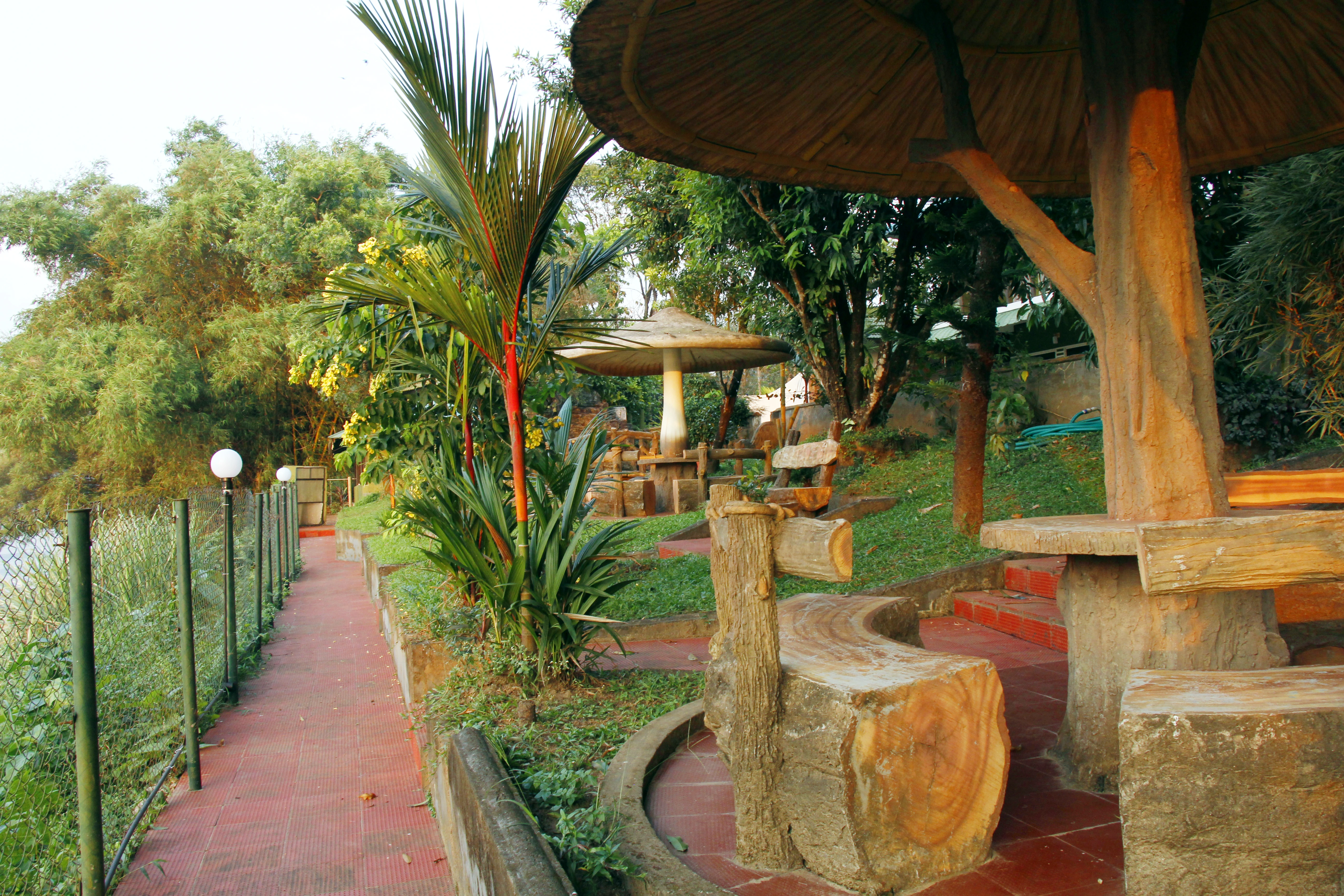
Apart from the metro cities, several destinations in India are known for ayurvedic treatments. Rishikesh and Haridwar, both located in Uttarakhand, are also known for their traditional ayurvedic centres. Varanasi, located in Uttar Pradesh, is another destination where people go for Ayurveda treatment. Even Goa, known for its beaches and nightlife, is home to several Ayurvedic centres that offer treatments for various health conditions. These destinations offer a perfect mix of traditional healing practices and scenic beauty, making them ideal for rejuvenating one’s mind and body.
In addition to Ayurveda treatments, many Ayurveda retreats in India offer a range of wellness programs, including yoga, meditation, and healthy food. Some of India’s most popular Ayurveda retreats include Ananda in the Himalayas, Ayurvedagram, and Kalari Kovilakom. These retreats offer a serene and rejuvenating environment for people to experience Ayurveda treatments and learn about the principles of holistic living.
Cardiac surgery
India has become a popular destination for cardiac surgery due to its advanced medical facilities and skilled doctors. According to a report by Medical Tourism Index, India ranks second in the world for cardiology and cardiac surgery after Thailand.
Orthopaedic surgery
India is famous for its advanced orthopaedic surgery procedures, including joint replacements and spinal surgeries. According to a report by the Medical Tourism Association, India is one of the top destinations for orthopaedic surgeries, with a cost savings of up to 90% compared to the US.
Cosmetic surgery
India has a growing cosmetic surgery industry, with many people coming to the country for procedures such as liposuction, breast augmentation, and facelifts. According to a report by the International Society of Aesthetic Plastic Surgery, India ranked fourth in the world for cosmetic procedures in 2019, with over 1.6 million procedures performed.
Cancer treatment
India is home to some of the world’s leading cancer treatment facilities, offering advanced treatments such as chemotherapy, radiation therapy, and immunotherapy. According to a report by the Medical Tourism Association, cancer treatments in India cost up to 60-90% less than in the US or Europe.
Dental care
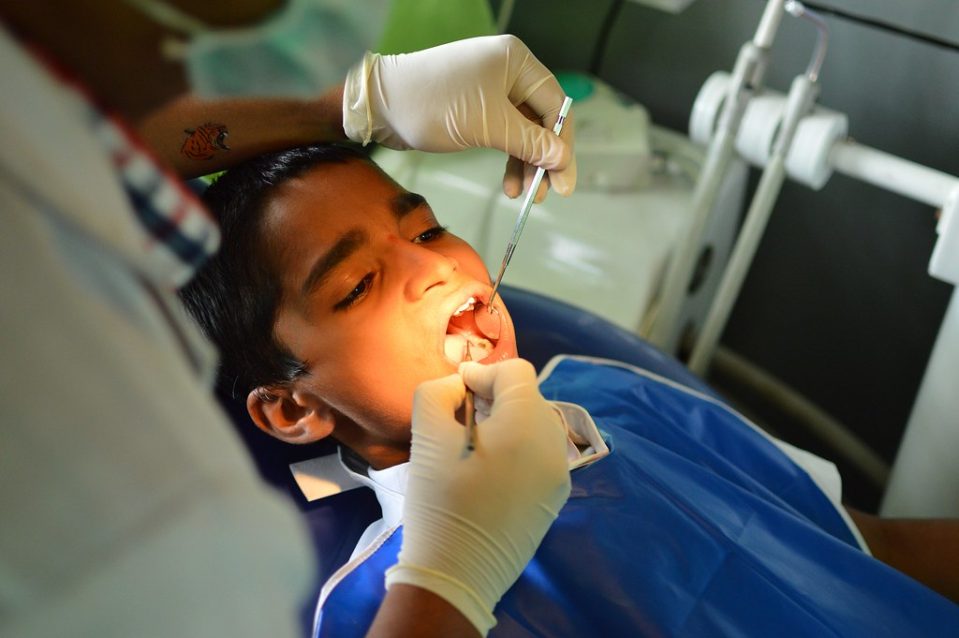
India is a popular destination for dental treatments, with many people coming for procedures such as dental implants and root canals. According to a report by Patients Beyond Borders, India’s dental tourism market is expected to reach a value of USD 3.2 billion by 2022.
Fertility treatment
India’s thriving fertility treatment industry offers advanced treatments such as in vitro fertilisation (IVF) and surrogacy. According to a report by the Medical Tourism Association, fertility treatments in India cost up to 70-80% less than in the US or Europe.
Before travelling to India for medical treatments, it is important to do thorough research and consult with medical professionals to ensure a safe and successful experience. India’s medical tourism industry has grown significantly in recent years, and its reputation as a top destination for medical treatments is expected to continue to grow in the coming years.
One of the major challenges of medical tourism in India – Transportation
In India, transportation can be a significant challenge for domestic and international tourists, particularly regarding accessibility and reliability. In addition, poor infrastructure, inadequate public transport, and congested roads can make it difficult for patients to travel to and from hospitals, especially in cities. The lack of reliable transportation options can be a significant challenge for elderly and senior patients who may require special assistance and accommodations. For instance, they may need wheelchair-accessible vehicles, non-emergency medical transportation, or trained drivers who can help them navigate the complexities of medical treatment.
Moreover, medical tourism requires reliable and timely transportation for urgent medical care patients. Therefore, the lack of safe and efficient transportation options can be a significant deterrent for international patients seeking medical treatment in India and can impact the country’s potential to become a leading medical tourism destination.
To address these challenges, the Indian government and private sector must invest in improving transportation infrastructure and services. This includes developing more efficient public transport systems, building better roads and highways, and providing reliable and affordable transportation options to and from hospitals. Such initiatives can improve domestic tourism and make India a more attractive destination for medical tourism, boosting the country’s position as a global medical hub.
In addition to the challenges posed by poor transportation infrastructure, the issue of last-mile connectivity can also be a significant hurdle in making India the topmost medical tourism destination in the world. Patients seeking medical treatment in smaller cities or towns often need help finding reliable and affordable transportation options to reach their destination from the airport or railway station.
However, the advent of ride-hailing services like Savaari, a chauffeur-driven car rental company in India, has greatly improved the last-mile connectivity for patients travelling for medical treatment. Providing safe, reliable and affordable transportation options has helped make medical tourism more accessible and hassle-free for patients.
- Patients travelling for medical treatment require timely and efficient transportation. Car rental services can offer reliable pick-up and drop-off services, ensuring that patients arrive at their destination on time. This can be particularly important for patients who require urgent medical attention or are travelling long distances.
- Patients and their families may require a comfortable mode of transportation, especially during long journeys. Car rental services can offer comfortable and well-maintained vehicles, ensuring that patients and their families can comfortably travel. This can be particularly important for elderly patients who require extra care and comfort during transportation.
- Safety is paramount when it comes to medical tourism. Car rental services can offer safe and secure transportation options with experienced and licensed chauffeurs. Patients can be assured that they are in safe hands, with well-trained and knowledgeable drivers about the local roads and traffic.
Savaari Car Rentals, a chauffeur-driven car rental company in India, recognised the growing demand for transportation services during the COVID-19 pandemic and swiftly responded by expanding its services to all 2000+ cities and towns where it operates. Savaari streamlined its operations to ensure timely service and began offering doorstep cab service within 90 minutes of booking hospital visits and vaccination appointments in any of the 2000+ cities. During the pandemic, Savaari served over 25,000 customers with their medical emergencies, providing them with reliable and safe transportation. Additionally, the company offered a 15 per cent discount on bookings made for vehicles to vaccination centres or hospitals when the country was grappling with the COVID-19 outbreak.
Savaari’s driver Ramesh, who transferred patients to hospitals during the pandemic, said, “It was a conscious decision on my part to assist as many people as I could as a driver during these times. The fact that I was able to do my part to help the community and the city was the only thing that kept me going through that difficult period. I also got the opportunity to assist a pregnant lady on her way to and from the hospital, which brought me joy as I was able to save two lives from the clutches of the pandemic. I keep reminding myself that in every patient I carry, I see a mother, a father, a sister, and a brother.”
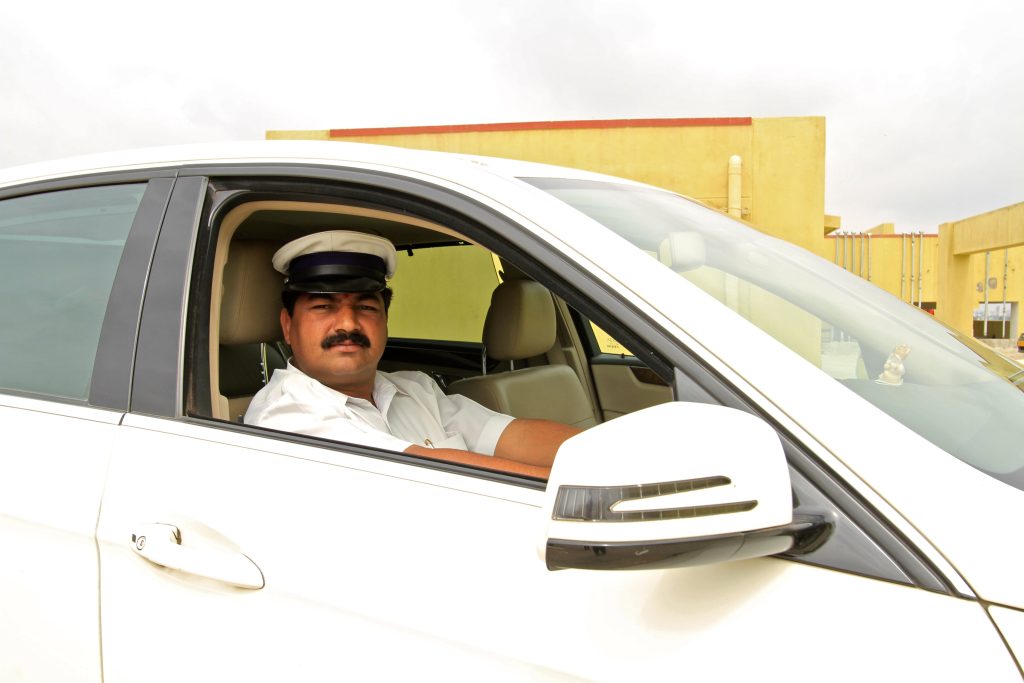
Cab services like Savaari in India can provide other value-added services, such as facilitating language translation, helping with paperwork and medical formalities, and offering customised tours for patients and their families. The services can be particularly beneficial for elderly patients who may require extra assistance during their medical trip. The company offers safe and reliable transportation services that meets the specific needs of elderly patients, including help with luggage, mobility aids, and other support services. By leveraging technology and innovative solutions, these services can significantly boost medical tourism in India and help the country emerge as a leading destination for medical treatment.
Top 5 medical tourism destinations in India
With state-of-the-art medical facilities and skilled healthcare professionals, India has become a hub for medical tourism. If you are considering medical tourism in India, here are the top five destinations that offer advanced medical facilities and skilled healthcare professionals.
- Chennai – Chennai, also known as the “health capital of India,” is a popular destination for medical tourism. The city is home to several world-class hospitals, including Apollo Hospitals and Fortis Malar Hospital, specialising in various medical treatments, including cardiology, oncology, and orthopaedics.
- Mumbai – Mumbai is another popular destination for medical tourism in India. The city has several renowned hospitals, such as Lilavati Hospital and Research Centre and Kokilaben Dhirubhai Ambani Hospital and Medical Research Institute, known for their expertise in specialities like neurology, cardiology, and oncology.
- Delhi – Delhi is India’s capital city and a central medical tourism hub. The city is home to some of the top hospitals in the country, including Max Super Specialty Hospital and Apollo Hospital, which offer world-class medical treatments in specialities like cardiology, neurology, and orthopaedics.
- Hyderabad – Hyderabad is rapidly emerging as a popular destination for medical tourism in India. The city has several world-class hospitals, such as Apollo Hospitals and Yashoda Hospitals, which specialise in medical treatments like cardiology, oncology, and neurology.
- Bangalore – Bangalore, also known as the “Silicon Valley of India,” is a popular destination for medical tourism. The city has several renowned hospitals, such as Manipal Hospital and Fortis Hospital, known for their expertise in medical treatments like cardiology, oncology, and neurology.
There are several destinations in India apart from the metro cities where people go for medical treatment. Kerala is famous for its Ayurvedic treatments and is also emerging as a medical tourism destination, with several hospitals offering world-class facilities. Ahmedabad in Gujarat is also becoming a popular destination for medical tourism, with hospitals such as Sterling Hospital and Apollo Hospitals offering specialized treatments. Other popular destinations for medical treatment in India include Jaipur in Rajasthan, Chandigarh in Punjab, and Coimbatore in Tamil Nadu. These cities have well-established healthcare infrastructure and highly skilled doctors, making them a preferred destination for patients seeking quality medical care. The availability of affordable medical treatments and a peaceful environment also makes these cities a popular choice among domestic and international patients.
If India’s transportation infrastructure improves for medical tourism, it can lead to significant growth in the medical tourism industry. Improved transportation facilities will make it easier for medical tourists to access medical facilities and move around the country. This can result in increased patient inflow, better coordination between hospitals and hotels, and, ultimately, boost the country’s economy. Furthermore, it can enhance India’s reputation as a top medical tourism destination and attract even more patients from around the world. The most convenient way to travel to these medical destinations is to download our car rental app. Better transportation facilities can have a positive impact on the medical tourism industry and the country’s growth as a whole.
Medical tourism updates:
- Himachal Pradesh has vast potential for medical tourism: Health minister
- Kerala will be transformed into a global healthcare hub, says CM Vijayan
- Over 1.4 million medical tourists visited India in past one year, says Tourism Minister
Last Updated on January 17, 2024 by Swati Deol



